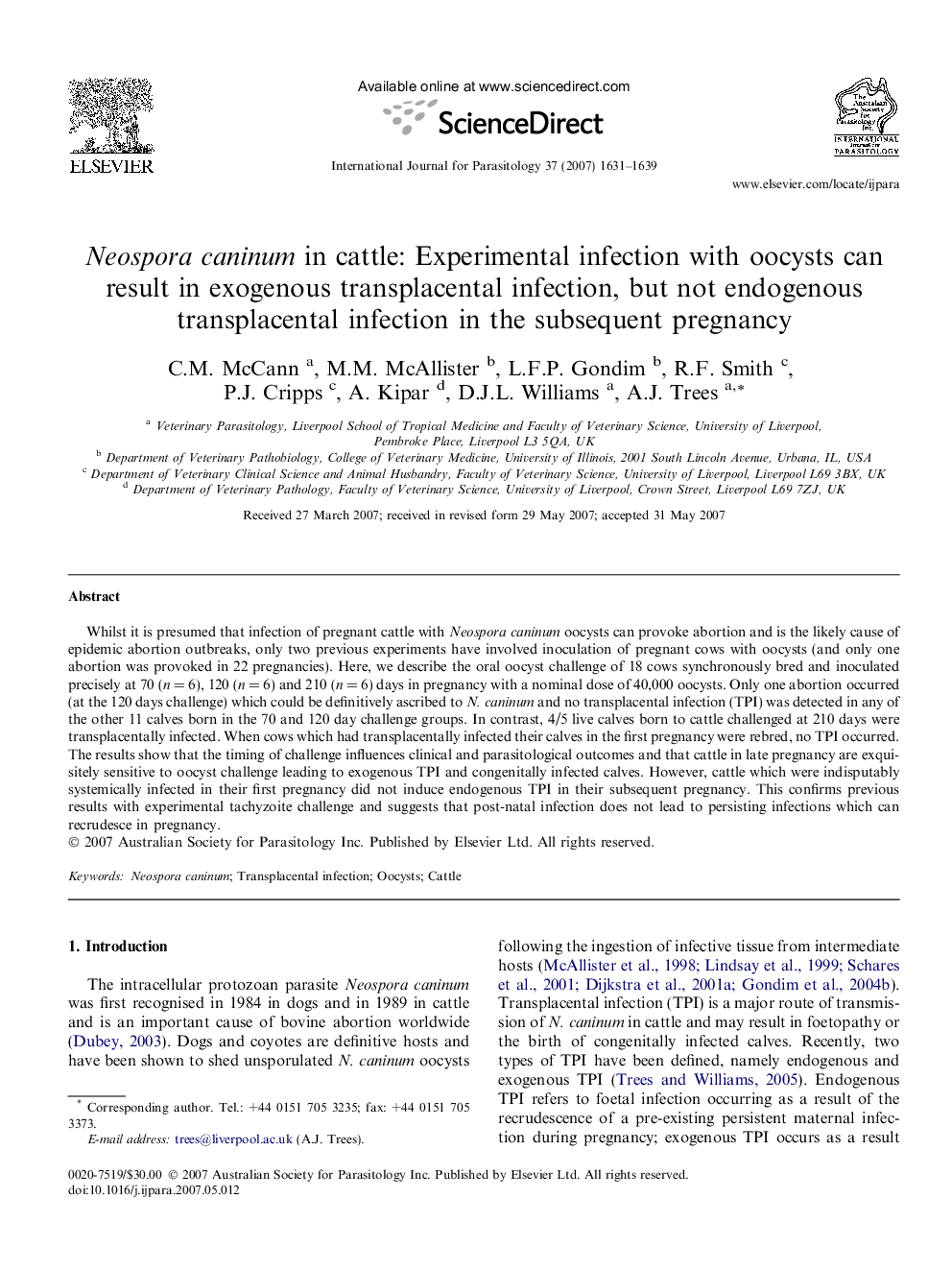| Article ID | Journal | Published Year | Pages | File Type |
|---|---|---|---|---|
| 2436650 | International Journal for Parasitology | 2007 | 9 Pages |
Whilst it is presumed that infection of pregnant cattle with Neospora caninum oocysts can provoke abortion and is the likely cause of epidemic abortion outbreaks, only two previous experiments have involved inoculation of pregnant cows with oocysts (and only one abortion was provoked in 22 pregnancies). Here, we describe the oral oocyst challenge of 18 cows synchronously bred and inoculated precisely at 70 (n = 6), 120 (n = 6) and 210 (n = 6) days in pregnancy with a nominal dose of 40,000 oocysts. Only one abortion occurred (at the 120 days challenge) which could be definitively ascribed to N. caninum and no transplacental infection (TPI) was detected in any of the other 11 calves born in the 70 and 120 day challenge groups. In contrast, 4/5 live calves born to cattle challenged at 210 days were transplacentally infected. When cows which had transplacentally infected their calves in the first pregnancy were rebred, no TPI occurred. The results show that the timing of challenge influences clinical and parasitological outcomes and that cattle in late pregnancy are exquisitely sensitive to oocyst challenge leading to exogenous TPI and congenitally infected calves. However, cattle which were indisputably systemically infected in their first pregnancy did not induce endogenous TPI in their subsequent pregnancy. This confirms previous results with experimental tachyzoite challenge and suggests that post-natal infection does not lead to persisting infections which can recrudesce in pregnancy.
